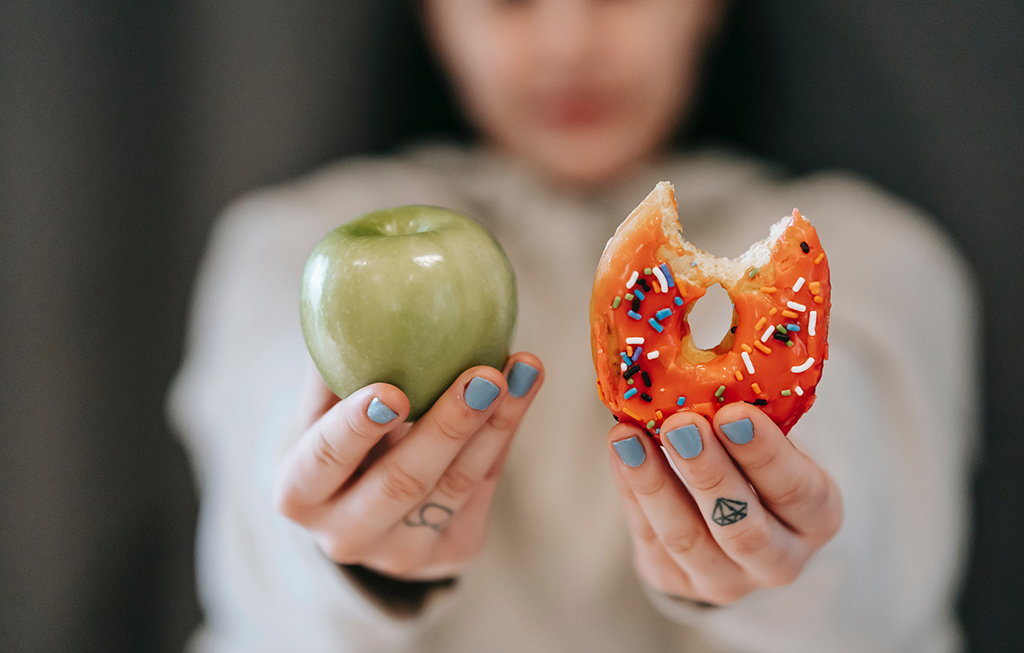Written by Elizabeth Wolfe, M.S., RDN
Mindful Eating – the act of being present when we are consuming a meal. Intuitive eating is related to this, but is specifically about learning to make food choices based purely on internal cues rather than the influence of external factors.
As children, most of us were acutely aware of our hunger cues, but as we grow into adulthood, many other factors come in to play that influence our eating behavior so that we no longer rely solely on the signals that let us know we are hungry. For example, we might eat because of the time of the day or because eating sounds appealing, or we may choose not to eat because we don’t want to gain weight and/or are influenced by “diet culture”.
Steps to Becoming a More Intuitive Eater
STEP 1: Honor your hunger
Early signs of hunger…
• Thinking about food
• Getting excited to eat
• Feeling tired
• An empty or growling stomach
Late signs of hunger…
• Feeling lightheaded
• Feeling weak
• Irritability
• Feeling dizzy or nauseated
You are most likely aware of both of these early and late signs of hunger. If we can become more attune to these cues and honor them by beginning a meal closer to the early stages of hunger, we can avoid the pitfalls that are more likely to occur when we are in those late stages of hunger.
The key is to start listening to the internal cues and then pay attention to any patterns so that you can plan for times of hunger. So, for example, if you start noticing that you begin to feel early hunger signs at 3pm most afternoons, plan for it by having healthy snack ready to be consumed when you start feeling hungry.
STEP 2: Learn to recognize satiety cues
Slow down and try not to eat so quickly. There is a delay between food consumption and the brain recognizing satiety so give it time to catch up!
Enjoy the company of others, relax and sip water with your meal.
Notice how you are feeling as you continue to eat your meal, being mindful of each bite.
One good indicator that you may be getting full is that the food might not taste as good as it did at the beginning of the meal.
STEP 3: Avoid “distracted eating”
Next time you are feeling bored or stressed and looking in the pantry during a work break, think of these tips:
Identify the reason behind the behavior. Sometimes if we realize that the reason we are eating is due to something like boredom or stress, we can make a different choice, such as taking a 10 min walk outdoors.
Plan out snack ideas and approximate times that you get hungry, as mentioned above. This will help you avoid eating when “hangry” and you will be more likely to stay on track with healthy choices.
Make sure each meal/snack contains a combination of at least two of the three macros: carbs, protein or fat so that you feel fully satisfied from the snack.
Limit refined grains as snacks (crackers, chips and cookies). We often think of these foods as snack food but they are also empty calories and can be very difficult to stop eating once we start!
Drink more water. Many times we think we are hungry when we are actually just dehydrated, so it’s really important to drink enough water.
For more information on Intuitive Eating, check out the 10 Principles of Intuitive Eating, according to the two dietitians who pioneered the Intuitive Eating approach.




